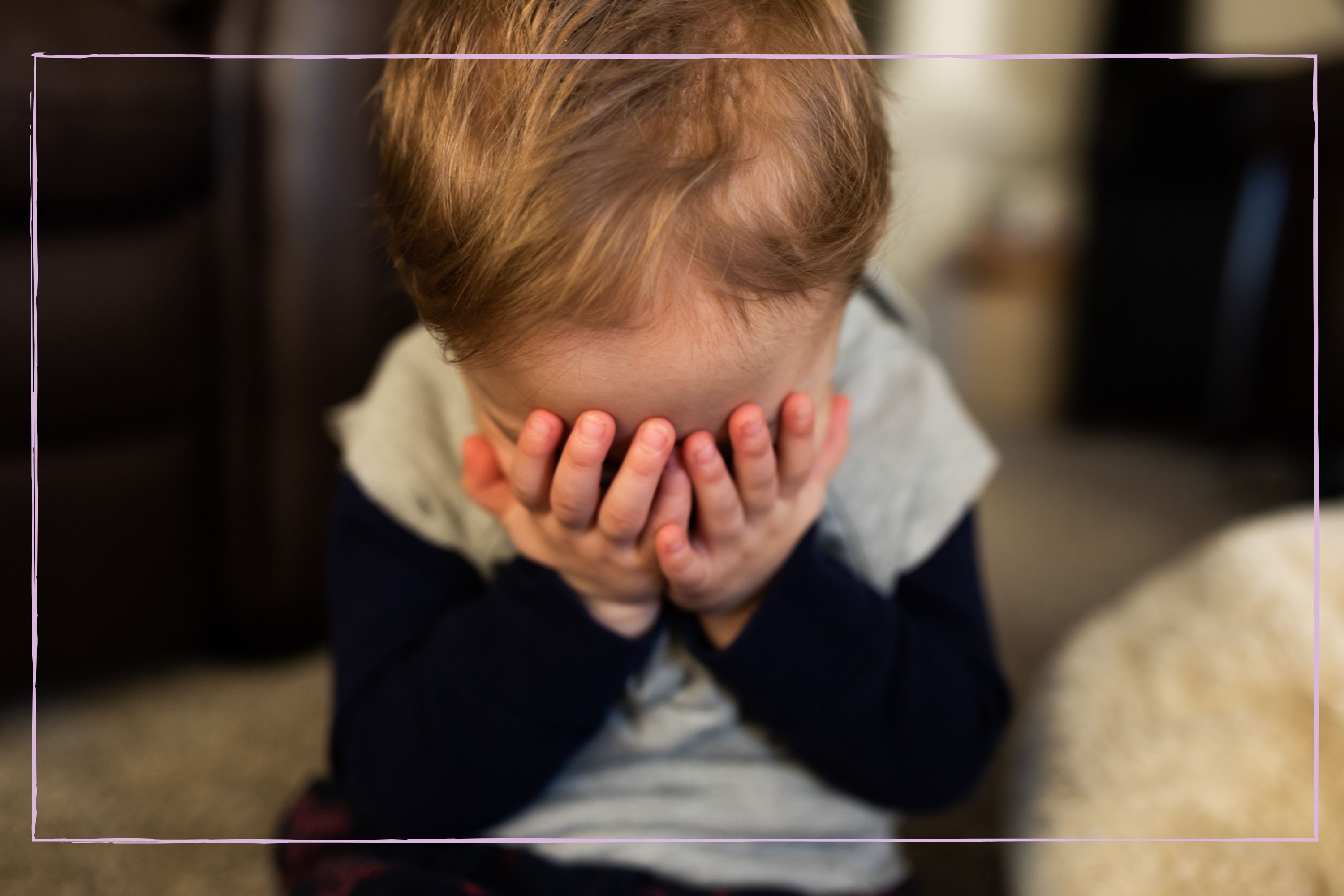"Smacking is ineffective" - child psychologist reveals 8 reasons it can damage parent-child relationships, amid calls for a ban
If you've ever smacked your children and regret it, we have some tips to help

Dr Patricia Britto

Parenting advice, hot topics, best buys and family finance tips delivered straight to your inbox.
You are now subscribed
Your newsletter sign-up was successful
Doctors are calling for a total ban on smacking in England and Northern Ireland, and we've spoken to a child psychologist who told us exactly how damaging it can be to parent-child relationships.
While some may recall how smacking was just what happened when you were a child, we don't see that there's a reason this particular parenting cycle should continue. Yelling to get your child to listen and resorting to smacking are both negative discipline strategies. If you want to raise successful children, psychologists call for both practices to be stopped - smacking was made illegal in Scotland in 2020, with Wales following in 2022.
A recent report from the Royal College of Paediatrics and Child Health (RCPCH) found the current laws in Northern Ireland and England regarding smacking, to be "unjust and dangerously vague". The organisation argued that debate surrounding the issue has gone on long enough, and now is the "time to act" to implement a full ban on smacking.
RCPCH Officer for Child Protection and Consultant Paediatrician Professor Andrew Rowland said in a statement: "The laws around physical punishment as they stand are unjust and dangerously vague. They create a grey area in which some forms of physical punishment may be lawful, and some are not. As a paediatrician working in child protection services, I am regularly faced with situations where it is alleged that physical punishment has been used against a child."
He added "The vague nature of the laws make it extremely challenging to talk to families about what the rules are around physical punishment of children, thus making it more difficult to talk about the best interests of their children. This lack of legislative clarity can even add an extra layer of complexity when trying to identify cases of child abuse."
Among many proven negative consequences of smacking are the harmful effects it has on the parent-child relationship. We spoke to Educational Psychologist Dr. Patricia Britto, who discussed what parents who continue to smack their children might expect to happen.
8 reasons smacking damages the parent-child relationship
- Children build a negative view of their parents. Physical punishment, such as smacking, is ineffective and can negatively impact children’s development. Often, smacking does not coincide with explaining what a child has done wrong and how they can do better. Smacking might create a short-term effect where a child may pause their actions while in shock, but their behaviour may continue after they get over the initial shock. Often, children still do not comply with instructions after being smacked in and they can begin to build a negative view of themselves and their parents. It can be highly damaging when the interactions between a parent and child are primarily negative, as it reduces the opportunity for a sense of trust and belonging to be solidified.
- It creates a relationship based on fear. Children may follow instructions out of fear after being smacked rather than respecting their parents' wishes. When parents do not offer children an alternative to their undesirable behaviours, they lose a teachable moment to help them understand why their actions were wrong.
- The child can become aggressive towards their parents. Children who are smacked are more likely to be aggressive and develop emotional and mental health issues, such as anti-social behaviours, anxiety and low mood. When smacking becomes the method of discipline constantly being used, physical aggression would most likely become a form of expression for a child when emotions become heightened, which can have a negative ripple effect on the relationship between children and their parents and peers.
- It doesn't model how to manage emotional regulation. Smacking is an emotional response which parents often use form when they are stuck on how to regulate their children’s emotions. Parents tend to smack children as a stress response and, therefore, do not model effective ways to manage stress. Also, it can create a divide as other effective methods, such as communicating feelings safely, become ignored.
- It can result in insecure attachments. Children who are smacked are at higher risk of experiencing abuse by their parents incidentally or intentionally. This is because it may take more force to continuously have the same effect as children develop their threshold for pain after being consistently smacked. Inflicting continuous pain on children can have a negative psychological effect on the development of a secure attachment between children and their parents.
- Smacked children are more likely to engage in risky behaviours. Children who are smacked may become immune to the pain over time and are likely to keep engaging in even more risky behaviours without fully understanding the consequences and the broader picture as they have become accustomed to being smacked.
- It can result in innate people pleasing and resentment towards parents. Smacking children consistently is most likely to influence children to provide a fawn response to stress, which involves people-pleasing. In this case, children will please people, and this could be to a detriment to themselves and can create long-term resentment and potentially fracture their relationship with their parents.
- Smacking can result in lifelong hypervigilance and poor relationships overall. Smacked children may develop lower self-esteem and a sense of worth over time, negatively impacting their confidence to interact with others and engage meaningfully in social situations such as family gatherings. For example, children may become hypervigilant and insecure in relationships with their parents and others and be afraid of being reprimanded and smacked if they share their authentic feelings. They are more likely to seek the approval of others.
Under current legislation in England and Northern Ireland, parents are able to argue they smacked a child as reasonable punishment - this means they aren't breaking the law under The Children Act 2004, which states it's against the law to cause a child actual or grievous bodily harm.
Parenting advice, hot topics, best buys and family finance tips delivered straight to your inbox.
With the evident damage to parent-child relationships and the overall health and well-being of smacked children, a total ban can't arrive soon enough. It's not only childhoods affected, with smacking resulting in overall decreased mental health when a child reaches adulthood, and being likely to repeat the cycle with their own children. It's time to break that cycle altogether.
If you've ever smacked your child and regret it, know that this doesn't make you a bad parent. We are firm believers in 'know better, do better'. Many parents smack as a form of discipline because that's what happened to them, and that makes sense to an extent, but now we are much more informed about what really works. If you're wondering what to do now, then take a look at our article on how to repair with your child - it has four steps that might help.
There's a multitude of reasons punishments don't improve kids' behaviour, and we've looked at the top three. Making empty threats also makes for an ineffective punishment strategy - but there is a better way to make your point. Of the parenting styles, eggshell parenting is likely to result in similar outcomes to smacking children, and we have everything you need to know about it.

Dr. Patricia Britto is a qualified Educational Psychologist (HCPC Registered) and a mother with practical and research experience. Her qualifications include a Doctorate in Professional Educational, Child and Adolescent Psychology (DEdPsy) from UCL, Institute of Education, an MSc in Mental Health in Learning Disabilities and a BSc in Psychology.

Lucy is a mum-of-two, multi-award nominated writer and blogger with six years’ of experience writing about parenting, family life, and TV. Lucy has contributed content to PopSugar and moms.com. In the last three years, she has transformed her passion for streaming countless hours of television into specialising in entertainment writing. There is now nothing she loves more than watching the best shows on television and sharing why you - and your kids - should watch them.
- Dr Patricia BrittoEducational Psychologist (HCPC Registered)